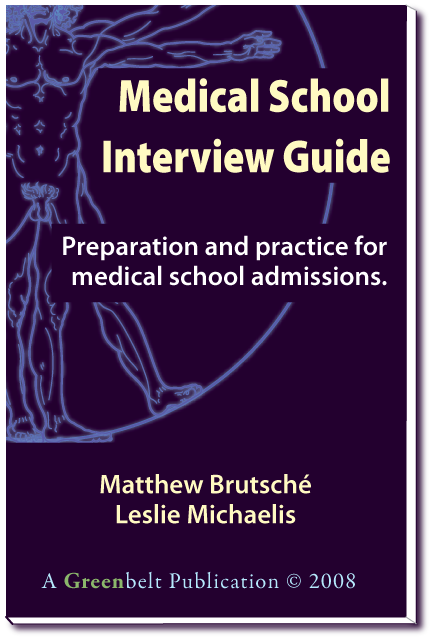Before the Interview for Medical School
Every year, U.S. medical schools receive over 40,000 applications to fill just over 18,000 available seats (AAMC). Competition for the admission to medical school is so fierce, that almost half the students who take the MCAT don’t even bother to apply, more than half of those who do apply will be rejected by every school that receives their application.
Since nearly every applicant has sufficient MCAT scores and is academically prepared to attend medical school, what distinguishes those who are accepted from those who aren’t? For most, interviewing successfully becomes a make or break proposition. Few prospective medical school students, however, have experience presenting themselves for the level of scrutiny to which they will be subjected during this process. Because interviewing can be extremely stressful, without practice and preparation, even the most qualified applicants may appear to their interviewers to be clumsy and inept.
This brief list outlines the preliminary work you should have done prior to your first interview:
- Review your academic resume
- Memorize the information in your application
- Establish and quantify clear goals for medical school
- Identify prospective professional goals
- Assess the medical school’s academic program
- Prepare for the questions you will be asked
- Devise your own questions for the interview
- Polish your image
- Practice interview techniques
Most of the work necessary to complete these tasks can be done through individual research, however, practicing interview techniques requires more rigorous effort and should be done with the assistance of others in mock interviews. Without feedback, you will be unable to accurately assess your performance.
The following sections will discuss medical school interview processes and preparedness in greater detail. Even if you feel you already grasp these concepts well, review the topics carefully to ensure you haven’t overlooked some crucial aspect.


